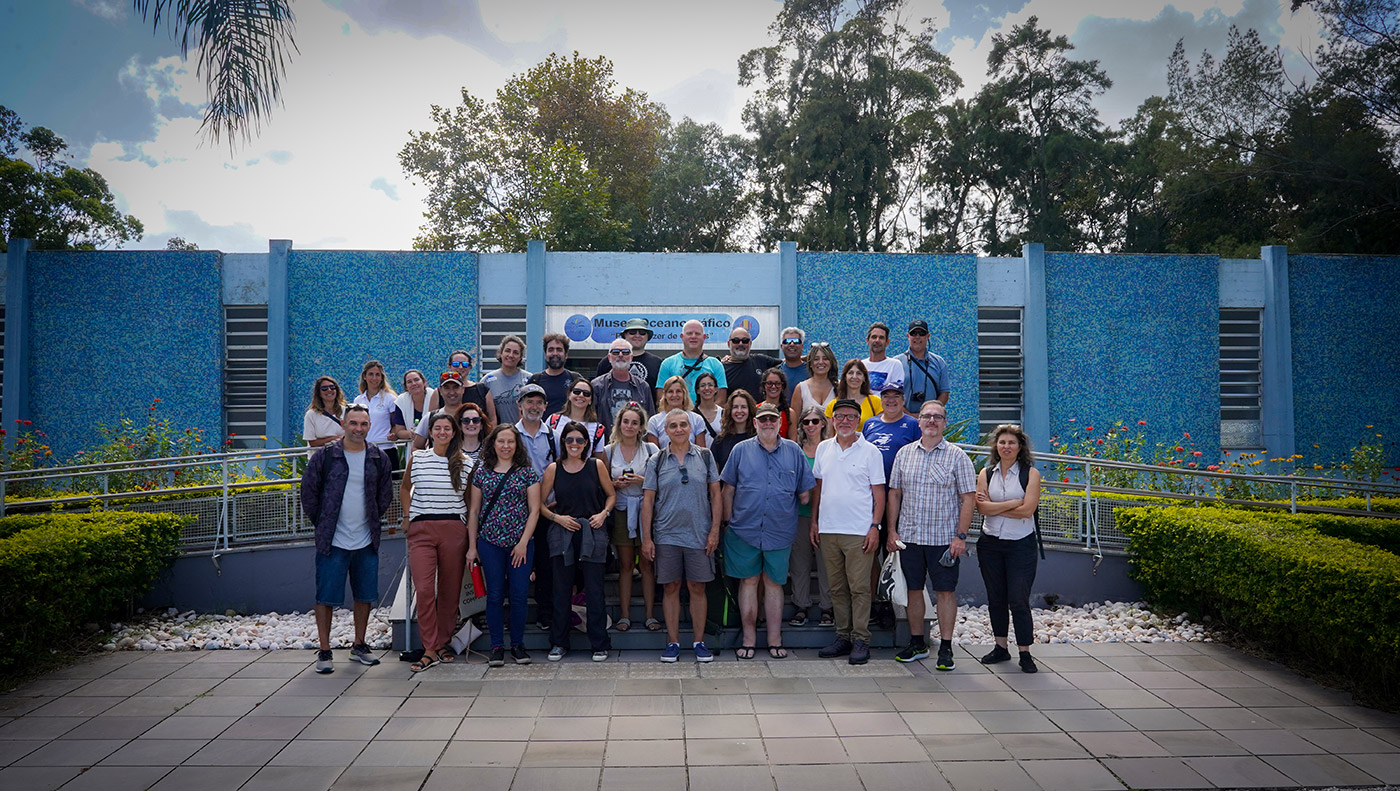
The meeting lasted four intense days of work, which took place between March 27 and 30, within the framework of the “XXI Plenary Meeting of the Forum for the Conservation of the Patagonian Sea and Areas of Influence”, with the participation of the organizations that form the network, focused on the protection of the sea and its biodiversity, and other guests.
The host organization was the Education and Environmental Monitoring Center (NEMA), a private non-profit organization of municipal public utility that operates along the Brazilian coast, mainly in the coastal region of Rio Grande do Sul, through coordinated actions of education, monitoring, research and conservation.
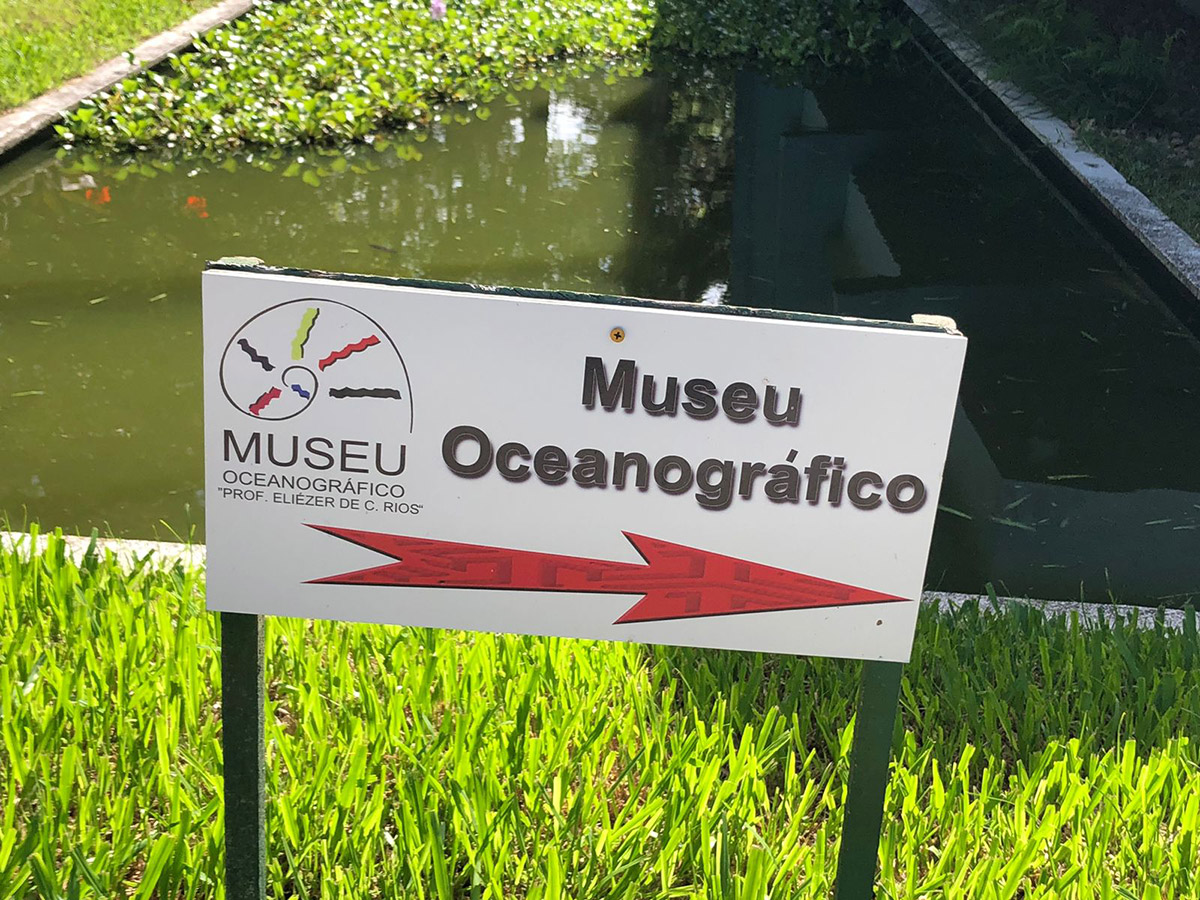
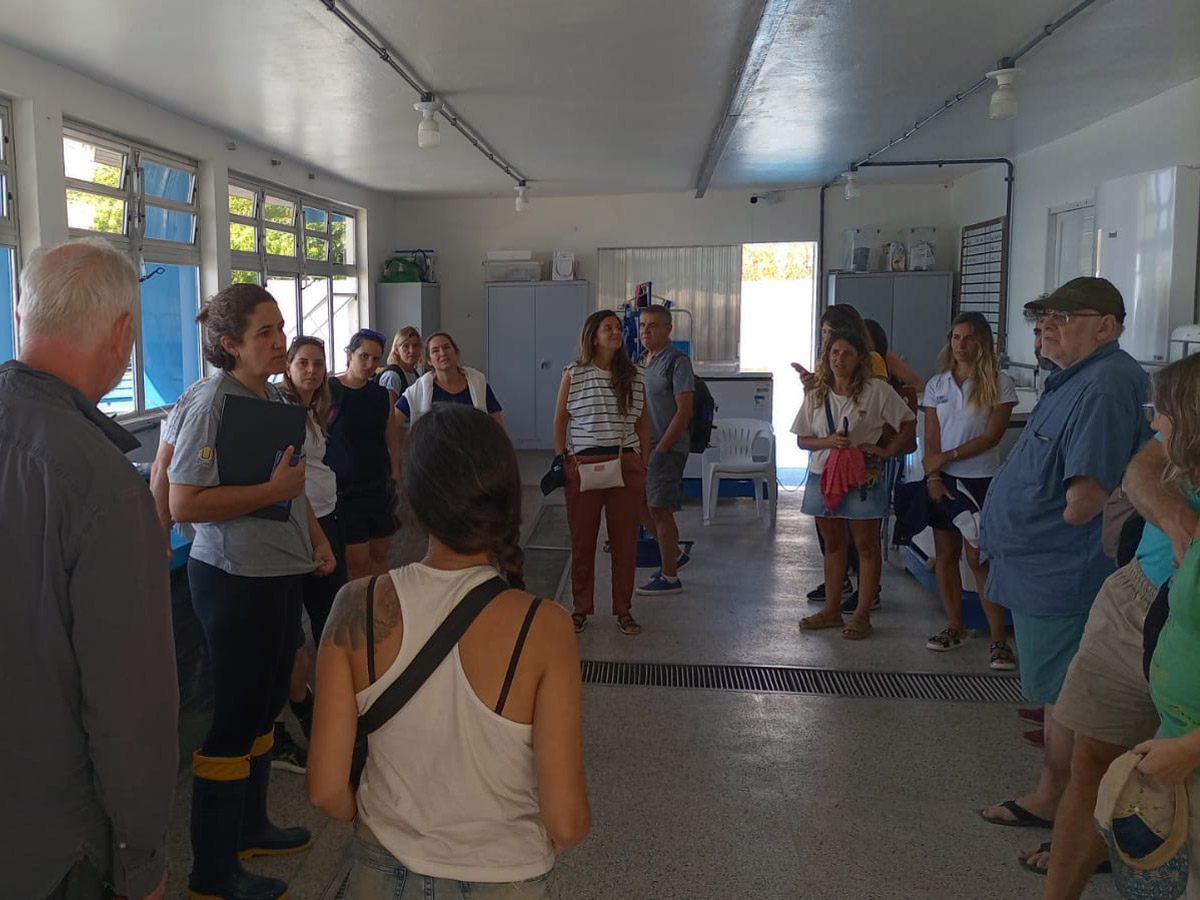
The main objectives of the meeting, which was held in person, with some virtual participation, were to support the marine conservation agenda of the Forum members in Brazil, to discuss and articulate aspects of governance, communication and lines of action with a regional focus (Argentina, Brazil, Chile and Uruguay) and temporal projection, and to publicize the work of the Forum among relevant actors.
The work agenda focused on the different threats that endanger life in the sea: garbage and marine pollution by plastics (an initiative that the Forum has been developing under the “Clean Patagonian Sea” project), seismic exploration and drilling of the seabed to extract hydrocarbons, and salmon farming, among others.
Strategies to face these and other dangers were also discussed, such as the training of managers of marine protected areas, MPAs (through the Forum’s School for Managers of MPAs), the challenges and opportunities of international agreements, social participation initiatives (especially aimed at incorporating young people), environmental education, the implementation of a “Strategic Living Agenda” and the dissemination of key information for decision-making.
The meeting was attended by local organizations from Brazil interested in joining or getting to know the Forum and, virtually, by NGOs from Argentina.
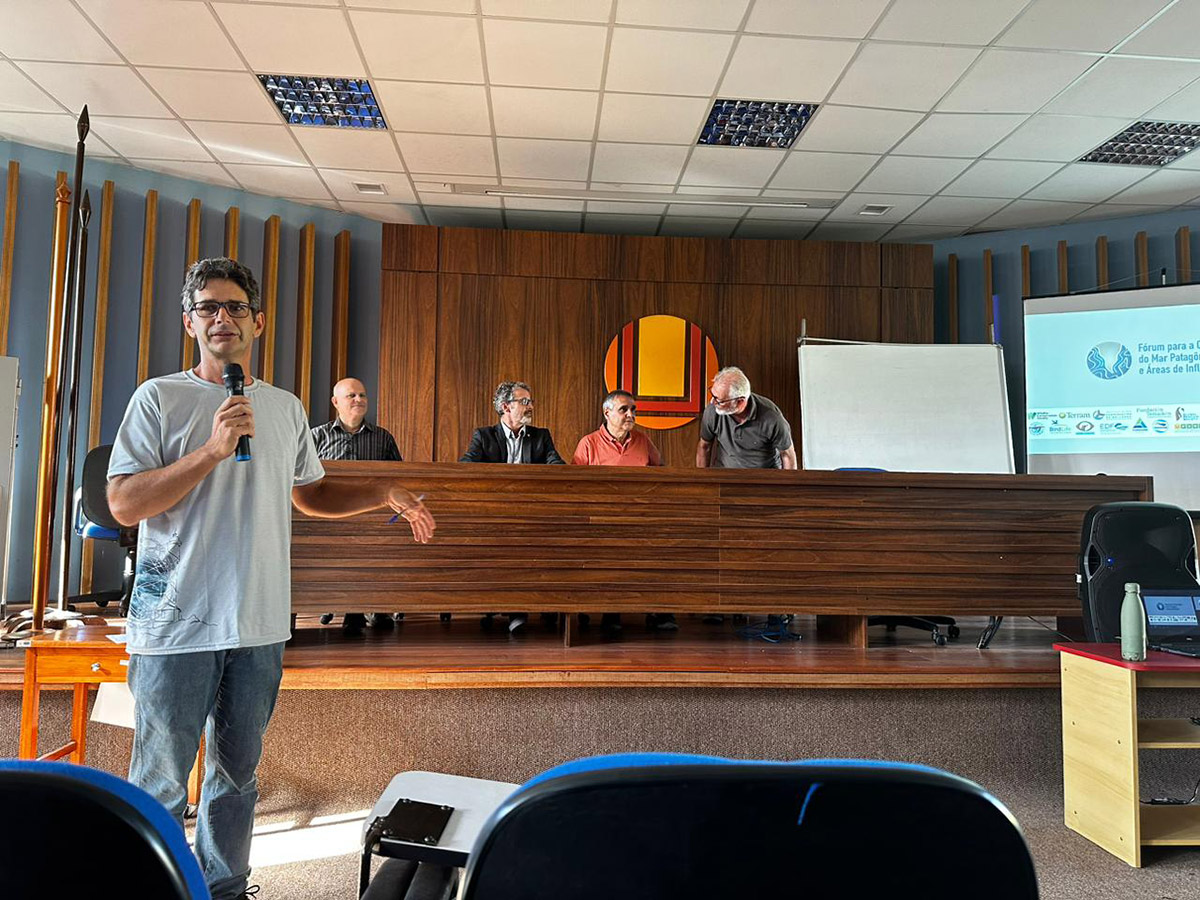
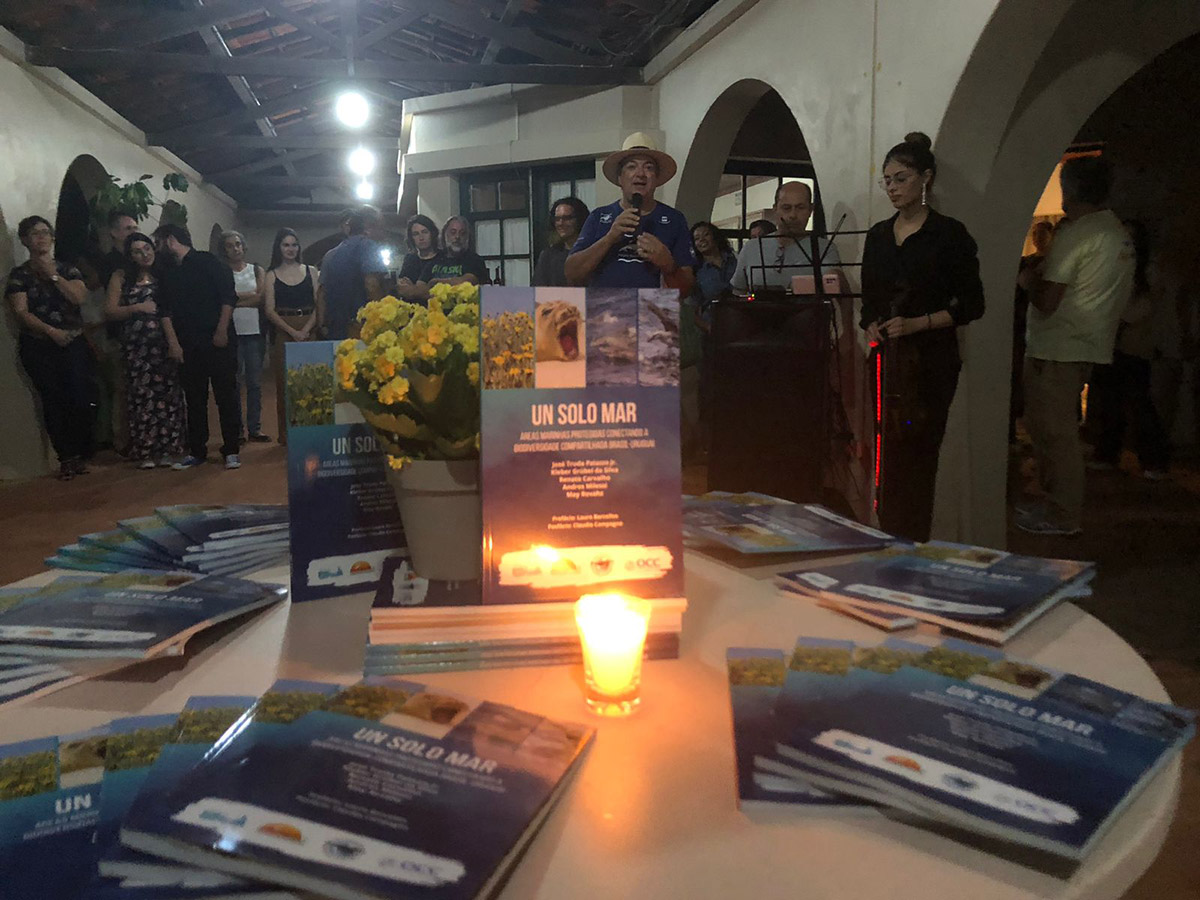
Creation of marine protected areas
Since the protection of marine ecosystems is a central theme for the Forum, initiatives to create new MPAs in Argentina, Brazil, Chile and Uruguay were discussed during the meeting.
Sergio Estima, project coordinator at NEMA, pointed out that the organization supports the creation of the Albardão National Park, the Coastal and Marine Dunes unit conservation and Parcel of Cidreira and the Rio Grande Elevation, as an area to be studied.
Valeria Falabella, from WCS Argentina, referred to the proposal to create the Agujero Azul (Blue Hole) Benthic MPA, approximately 400 km from the Gulf of San Jorge. This MPA, which has already been approved by the Argentine Chamber of Deputies, seeks to protect vulnerable marine ecosystems and submarine canyons of high biodiversity and ecological relevance in the area of the slope.
Álvaro Soutullo, of Vida Silvestre Uruguay, said that about seven sites of high conservation value have been identified in that country and that the challenge today is to reach inter-institutional agreements and to implement different environmental management instruments. He commented that a proposal has been presented for the creation of two MPAs, but that work is still incipient.
Mauricio Palacios, from WCS Chile, highlighted the work of the members of the Forum in promoting the implementation of management tools for existing MPAs, through the support provided to the National Fisheries Service and the Ministry of the Environment. He also highlighted the preparation of technical inputs regarding ecosystem representativeness and threats to MPAs in Patagonia, within the framework of the Oceans5 project.
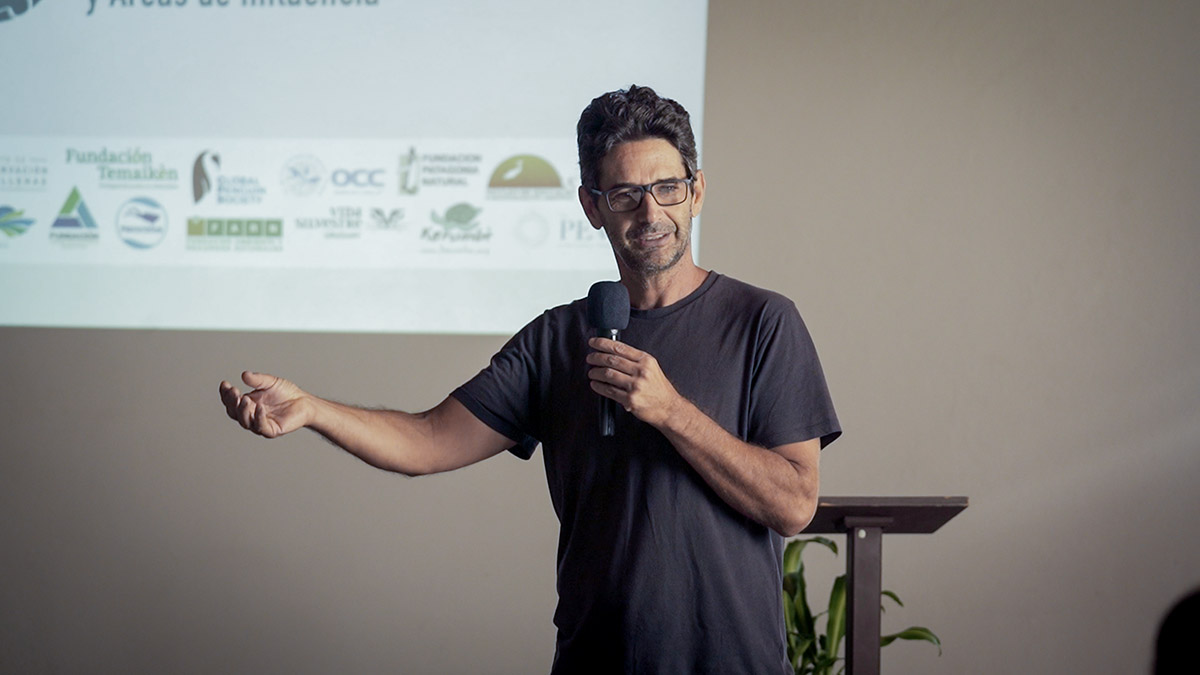
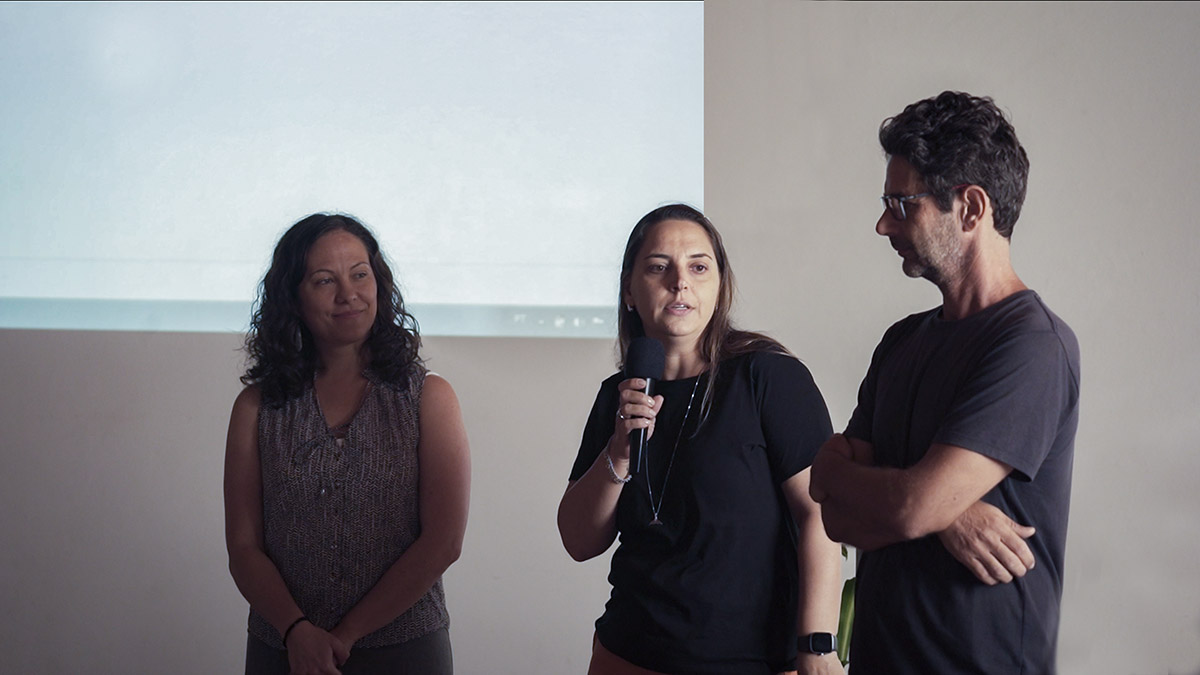
Regional exchange
Almost 20 years after the creation of the Forum, the meeting generated instances of internal evaluation, which included the planning, for 2023, of the review of aspects of governance and structure, internal and external communication, financial sustainability, work procedures and constitution of groups, future scenarios, new leadership, effectiveness and impact of strategies.
NEMA organized activities that made possible the exchange of Forum members with members of Rio Grande’s emblematic institutions, such as the Oceanographic Museum “Prof. Eliézer de Carvalho Rios” (founded in 1953) and the Oceanographic Institute (1971) of the Federal University of Rio Grande (FURG).
At the Museum, the members of the Forum had the opportunity to meet and talk with its director Lauro Barcellos, who not only spoke about the origin, history and function of the complex, but also gave a deeply inspiring talk on the task of conservation. In addition, they were able to tour and learn about the activities carried out at the Marine Animal Recovery Center (CRAM-FURG), together with its coordinator, Paula Canabarro.
At the Institute of Oceanography of the FURG, the president of the Forum, Alejandro Vila, gave a presentation on the work of the Forum as a network of organizations, with the aim of sharing actions and objectives with students and professors of that university.
Afterwards, members of the Forum and the academic community participated in a presentation, followed by a dialogue with Claudio Campagna, first president and founder of the Forum, who spoke about his current research on a new approach to the language of conservation based on the prioritization of ethical aspects over scientific ones, as a basis for sustaining conservation practices.
The Plenary was also the setting for the presentation of the book “One Sea” (“Un Solo Mar”), produced with the support of Oceans5. Its authors are José Truda Palazzo Jr, Kleber Grübel da Silva, Renato Carvalho, Andrés Milessi and Mayra Rocha, with a prologue by Lauro Barcellos and an epilogue by Claudio Campagna. The presentation was attended by local authorities and representatives of academia, enabling an exchange with members of the Forum and its organizations.
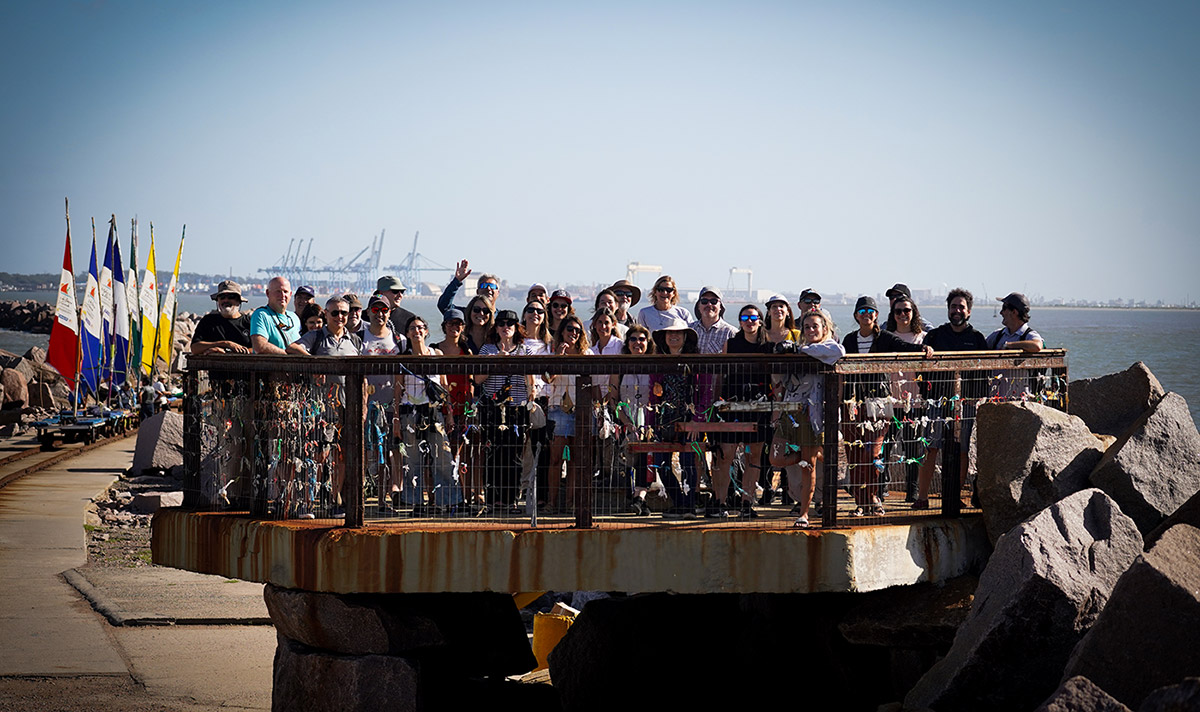
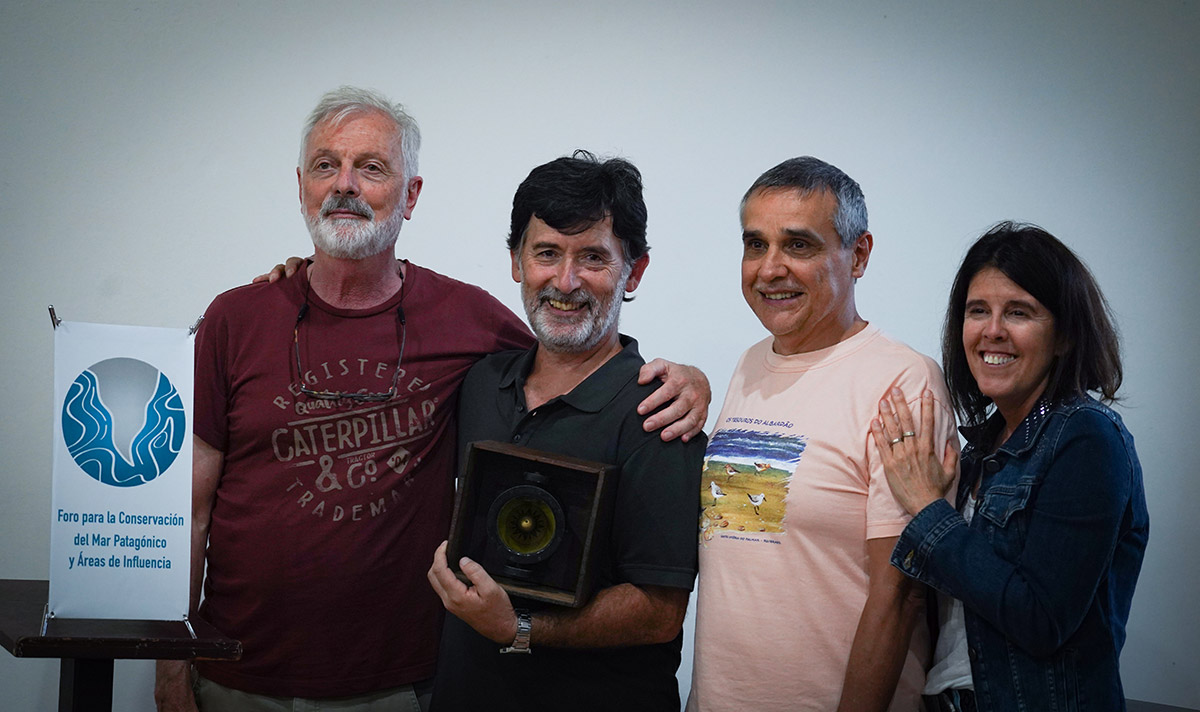
The trajectory of Diego Taboada, vice-president of the Forum and president and co-founder of the Whale Conservation Institute (ICB), was also recognized during the event with the awarding of the Lobo Orensaz prize. After an almost unanimous vote by Forum members, Taboada received the award in recognition of his work and commitment to marine conservation, and in the consolidation of the Forum as an organization.
The award commemorates the outstanding marine biologist and promoter of the first MPA in Argentina, the San Jorge Gulf, in Península Valdés, considered an example of generosity and selflessness.
At the end of the meeting, NEMA’s facilities were visited, where an “Oceanic Sensory Exhibition with Immersive Dome” was inaugurated by the Organization for Cetacean Conservation of Uruguay (OCC).